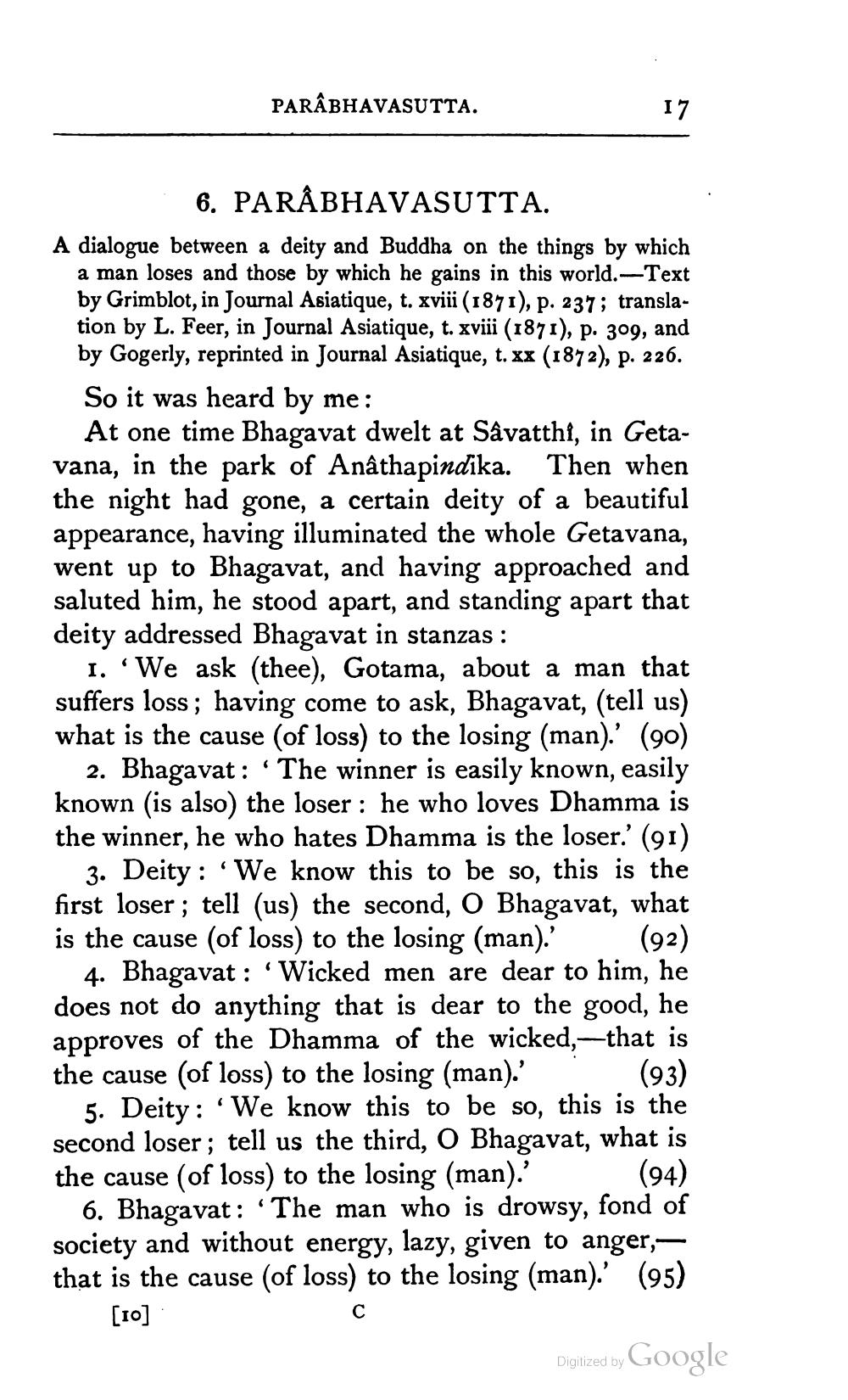________________
PARÂBHAVASUTTA.
17
6. PARABHAVASUTTA. A dialogue between a deity and Buddha on the things by which
a man loses and those by which he gains in this world.—Text by Grimblot, in Journal Asiatique, t. xviii (1871), p. 237; translation by L. Feer, in Journal Asiatique, t. xviii (1871), p. 309, and by Gogerly, reprinted in Journal Asiatique, t. Xx (1872), p. 226. So it was heard by me:
At one time Bhagavat dwelt at Sâvatthi, in Getavana, in the park of Anâthapindika. Then when the night had gone, a certain deity of a beautiful appearance, having illuminated the whole Getavana, went up to Bhagavat, and having approached and saluted him, he stood apart, and standing apart that deity addressed Bhagavat in stanzas :
1. We ask (thee), Gotama, about a man that suffers loss; having come to ask, Bhagavat, (tell us) what is the cause (of loss) to the losing (man).' (90)
2. Bhagavat: "The winner is easily known, easily known (is also the loser : he who loves Dhamma is the winner, he who hates Dhamma is the loser.' (91)
3. Deity: 'We know this to be so, this is the first loser ; tell (us) the second, O Bhagavat, what is the cause (of loss) to the losing (man). (92)
4. Bhagavat : 'Wicked men are dear to him, he does not do anything that is dear to the good, he approves of the Dhamma of the wicked,—that is the cause (of loss) to the losing (man). (93)
5. Deity: 'We know this to be so, this is the second loser; tell us the third, O Bhagavat, what is the cause (of loss) to the losing (man). (94)
6. Bhagavat: ‘The man who is drowsy, fond of society and without energy, lazy, given to anger, that is the cause (of loss) to the losing (man).' (95) [10]
Digitized by Google




